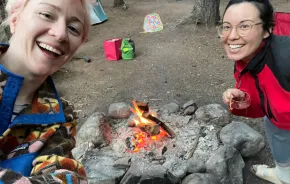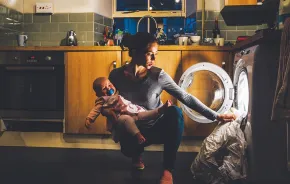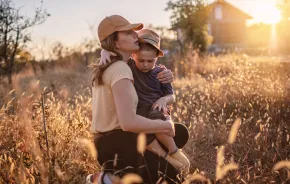 As parents, we want our children to be happy. We want them to achieve great things. But we also want them to be good people. We want to be as proud of their kindness, generosity and integrity as we are of their achievements. How do we help them get there?
As parents, we want our children to be happy. We want them to achieve great things. But we also want them to be good people. We want to be as proud of their kindness, generosity and integrity as we are of their achievements. How do we help them get there?
Moral development
Research shows us that healthy human children come into the world primed to become moral members of society, just like they come into the world primed to acquire language. Moral emotions, such as empathy, shame and guilt, begin to show their presence during the toddler years. A toddler may pat an injured peer, or offer a grubby toy to an adult who is distressed. A preschooler may hide in the closet to cover a transgression. As a child learns to think, moral emotions are joined by moral reasoning. By age 5 or 6, they can argue long and loud about fairness.
Even so, kids don’t learn to be decent human beings without adult input any more than they learn to communicate without adult input. For a child to grow into an honest adult, for example, we have to model honesty, expect it and explicitly teach it.
Virtue and morality
One way to think about moral development is that bad behavior is simply the absence of virtue. When a child hurts another, it may be that their internal sense of kindness, patience or self-control has fallen short. When they sneak or steal, it means their internal sense of honesty wasn’t as strong as the external temptation.
Rather than making the bad behavior itself the focus of our attention and conversations with them, we can put our energy toward helping them to grow good qualities. This is not to say that bad behavior never needs labels and consequences. Rather, every time our child “crashes” is an opportunity to explain and encourage the virtues we are trying to cultivate.
The Wisdom Commons
The Wisdom Commons, an interactive Web project that sprouted out of Seeds of Compassion, offers parents and educators a new tool for teaching about positive character traits. The Wisdom Commons is structured around a set of approximately 100 virtues that human beings generally agree are important, such as generosity, compassion and courage. As a way of promoting these virtues (and showcasing how widely they are valued), the Web site houses a library of more than 3,000 quotes, stories and other bits of wisdom from around the world.
Once registered on the site, you can click your favorite bits of wisdom to collect them in a “Personal Wisdom Page.” Soon you’ll be able to turn your collection into Mom’s or Dad’s Book of Common Wisdom, a print-on-demand book in which you can mix your collection with photos and a personal dedication. One easy way to find bits of wisdom that are meaningful to you is to sign up for the “Daily Wisbit” sent out to members who request it.
Ideas for parents
- Choose a “virtue of the week” to discuss at the dinner table. Why does this virtue matter? How is it honored in your family’s spiritual or cultural tradition? How have family members demonstrated this virtue recently? When have they seen it in other people?
- Ask each child to find a quote that they really like. Have them read it to other family members and explain why they like it.
- Make a game of reading bits of wisdom aloud together and giving each one a rating, thus prompting whatever discussion is needed to reach a family agreement or average.
- Find a special quote each week that reflects your family’s values. Click the printer icon after the quote to print it out as an 8½ x 11 poster. Put it on the fridge.
- Create a Wisdom Page and begin storing bits of wisdom you want to share with your kids. Alternately, create a shared family Wisdom Page together, with input from everyone.
When our kids start leading us
After watching me work on the Wisdom Commons with a team of software engineers and the wonderful volunteers who contributed the first 1,000 bits of wisdom to the site, my middle-school-age daughters, Brynn and Marley, gave me a birthday present. Each of them adopted a virtue (justice and aspiration, respectively). They registered to create wisdom pages of their own and spent a morning researching their chosen virtues and entering quotes and poems they liked.
Then they went back to their other interests, or so I thought. Imagine my surprise and delight last month when I clicked on my “Daily Wisbit” email from the Commons and found a poem about confidence, secretly penned by Brynn.
Our children not only learn from us about what it means to be good, loving, effective people, they also teach us — if we are willing to be taught. But it’s up to us to open the conversation.
Valerie Tarico, Ph.D., is a psychologist and author in Seattle, and founder of WisdomCommons.org. She is also the mother of two middle-school-age girls.









